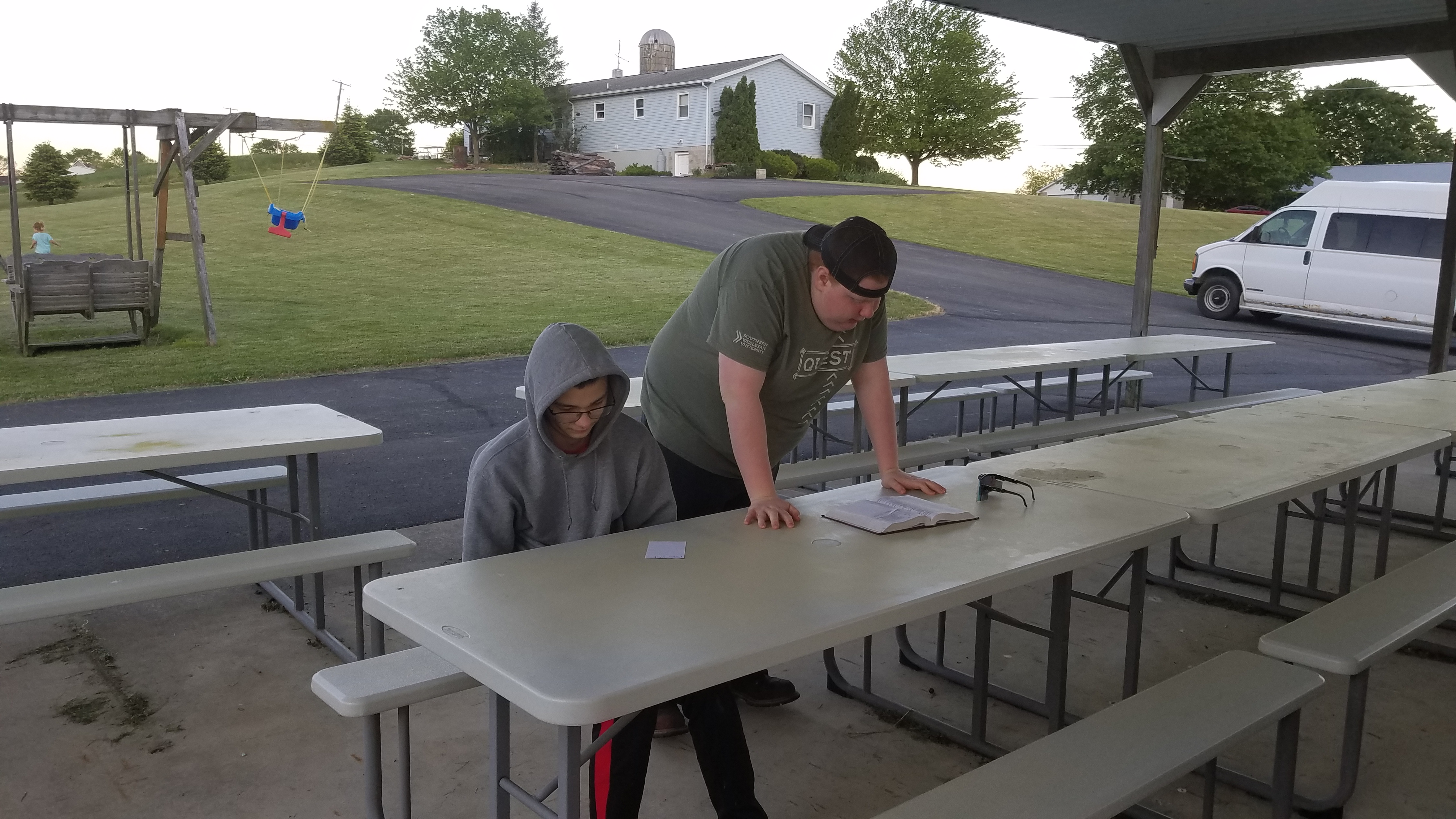Welcome to this week’s online lesson. Catch up with previous lessons by clicking here.
We’ll kick off with this classic song by Michael W. Smith that some may recognize from VBS:
Please continue to pray for Pastor Paul and the Sheets family and others who have dealt with loss over the past six months, such as the Eia and Mitchell families. It has been a really challenging time for many connected to our church.
Sammy has been really sick. Please keep him in prayer as he recovers. Praises for the Freed/Walter family as they get past the COVID situation they dealt with over the past few weeks ahead of their Hawaii trip later this month.
Please pray for the AWANA ministry as they wrap up over the next couple weeks and head into the summer months. Hopefully, the kids find ways to connect with God and His Word during the “off” months.
—
How popular is the Dodge Durango? The Buick Rendezvous? How quickly could you identify each specific make/model of SUV, and how many have you seen in our area over the past several years?
We recently owned a Durango, a full-sized SUV that I really never paid attention to until we actually owned it. After purchasing it from a small dealership outside of Mifflinburg, I started noticing them more often on the road. A vehicle I barely knew existed before suddenly became pretty easy to spot.
I realized the same was true of the Rendezvous we owned before the Durango. Again, before owning it, I don’t remember ever seeing a Rendezvous on the road. Now, I notice them pretty regularly. Why is that?
The phenomenon came back to me Tuesday night when I was sitting through a weekly training session for the Pennsylvania Master Naturalist program I joined. The instructor handed out stuffed bird species — one per participant — and we had to ID it using a bird book and then present special features about the bird to the class.
I received an American Bittern — a species common to marshes and wetlands that has a few very unique characteristics. Their call is a really distinguishable water gurgling/pumping sound. They stand straight up with their beaks pointed skyward when threatened, and the coloration of their neck feathers mimics cattails and long grass species common to wetlands. It was a bird I had studied a few years prior to teach to a group of kids preparing for the regional Envirothon.
A woman next to me received a mounted Eastern Meadowlark. She spent most of the class struggling to ID it and wound up cheating by reading the tag attached to its leg. To me, it was an easy ID because growing up, we’d see tons of meadowlarks swooping over hay fields while we baled hay each summer.
The realization that came to me after class — and after remembering the car ID phenomenon — is that I had become personally connected to each of those species (and cars) at one point or another, and because I had that vested interest and overall curiosity about it, I delved into learning more. What was once unfamiliar territory became common knowledge, so to speak.
This provides an important object lesson on why God so badly wants us to study His Word. To spend time reading our Bibles every day and soaking up the narrative and the meaning behind it. There are ton of reasons we should read God’s word, many of which are listed in the verses we find in both the Old and New testaments.
Instead of spelling out each verse for you, I’d like you to look up each of these verses, read it and think a few moments about what it means and how it illustrates the importance of regular bible reading:
Psalms 119:105
2 Timothy 3:16
Romans 15:4
Psalms 119:11
Colossians 3:16
Hebrews 4:12
1 Timothy 4:13
1 Peter 2:2
John 17:17
Psalm 119:30
Romans 10:17
Job 23:12
Considering the message provided through these verses as a whole, why do you think God wants us to read His Word regularly?
Lots of people have good intentions to read their Bibles every day, but the routine doesn’t always stick so well. Here are a few recommendations on how to make it more realistic for you:
Keep the right perspective. Remember that you’re not reading just to check something off your list. You’re reading a book that’s useful for correction, instruction, and guidance. It’s your life GPS.
Step away from the guilt. Don’t let Bible reading become a matter of guilt. It’s something you have the privilege of doing; not something you have to do.
Change it up. You don’t have to just read the Bible; you can listen to it as well. Try reading out loud one day or using a different translation. Mixing things up will help you stay on track.
Be flexible. If you fall behind on your reading plan, don’t worry about meeting a specific deadline. Just read what you can when you can. Somedays you may only have time for one chapter. Other days you may have time for two days’ worth of readings. Even if your “one-year plan” takes two years, at least you’re reading.
Dig deeper. Make your Bible reading a time of discovery. Use study resources and videos.
Enjoy it. Reading the Bible isn’t a chore. It’s a chance to connect with God through His Word. Pray that the Holy Spirit will use Scripture to grab your attention and challenge you with what you discover.
Get accountable. Reading with a group, a friend, or a spouse will certainly give you an extra boost. You can hold each other accountable and discuss what you’re reading.
On the accountability end of things, we would love to challenge the youth in our group to read regularly and log their readings as a way to encourage each other. When you read a passage/book/chapter/verse of the Bible, record it via our new online PAW Youth Bible Reading Log. We will provide some prizes/rewards for those who start racking up some consistent Bible reading in the coming weeks and months heading into and through summer vacation.
Have other ideas on how we can help each other stay on track in this important personal ministry? Send us an email.












